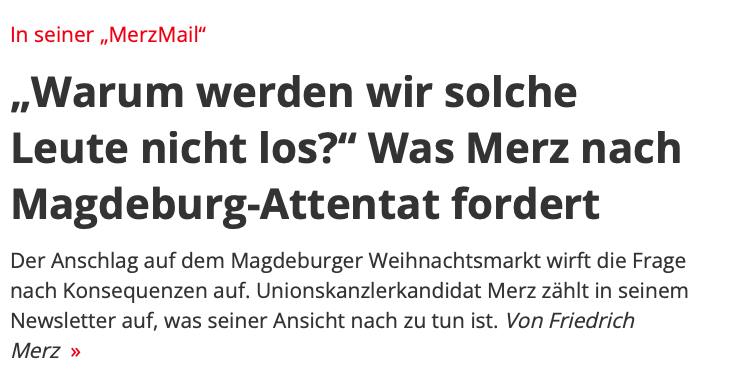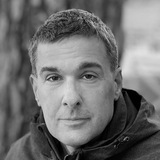group-telegram.com/reitschusterde/11546
Last Update:
Merz fordert Konsequenzen – aber was bringt es?
Der CDU-Chef tritt im „Focus" als Gastautor auf und präsentiert Forderungen nach neuen Gesetzen und härterem Durchgreifen – ein Standardrepertoire nach jedem neuen Anschlag. Doch solange er an der „Brandmauer“ zur AfD festhält, bleibt eines sicher: Egal, was er fordert, am Ende regieren SPD oder Grüne mit und verhindern jede echte Veränderung.
Erstaunlich bleibt dabei, für wie dumm unsere Politiker ihre Wähler offenbar halten. Merz inszeniert Entschlossenheit, doch in Wahrheit zementiert er genau das „Weiter so“, das er vorgibt zu bekämpfen. Unter dem Deckmantel bürgerlicher Politik unterstützt er faktisch die rot-grüne Macht-Hegemonie – nur eben im CDU-Schafspelz und mit ihm als Kanzler.
Besonders bizarr: Merz versucht Härte zu demonstrieren. Doch das einzige, was wirklich hart und konsequent ist an seiner Politik, ist die Weigerung, die Realität anzuerkennen und die Unterordnung unter Rot-Grün. Was bleibt, ist eine Inszenierung, während die Probleme weiter bestehen. Und wachsen.
BY reitschuster.de

Share with your friend now:
group-telegram.com/reitschusterde/11546
